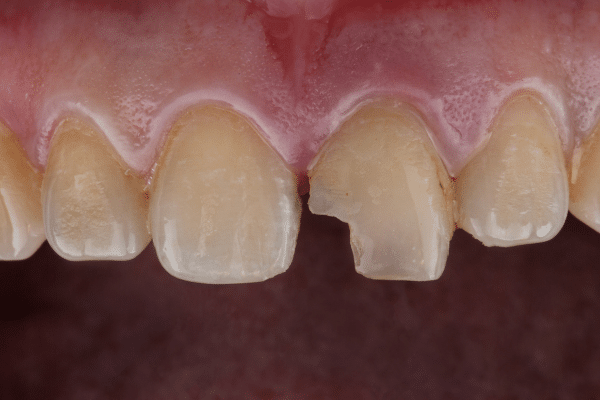Your oral health is a mirror reflecting your overall health. The mouth does not exist in isolation from the rest of the body. Every time you eat, speak, or even smile, your mouth is actively participating. These simple actions can speak volumes about your broader health conditions. From initiating the digestive process to indicating serious health issues like diabetes or heart disease, the state of your oral health can be a clear indicator of your overall well-being. With this understanding, it becomes evident why maintaining impeccable oral health is not just about a bright smile but ensuring the body functions optimally.
Contents
The Gateway to Digestion

Oral health plays a crucial role in the initial stages of the digestion process. Saliva, which is produced in the mouth, contains enzymes that start the breakdown of food. These enzymes signal the stomach to produce gastric juices even before the food reaches there. On the other hand, strong and healthy teeth are responsible for chewing food efficiently, making it easier to digest in the subsequent stages. If oral health is compromised, it can lead to insufficient breakdown of food, which might result in digestive problems.
Moreover, an unhealthy mouth can be a breeding ground for harmful bacteria. When these bacteria mix with food particles, it can lead to various digestive issues, from simple discomfort like indigestion to more severe problems such as gastric ulcers. By taking care of one’s mouth and ensuring it remains clean and healthy, one can pave the way for a smoother, more efficient digestive process.
Connection to Cardiovascular Health

Oral health and heart health may seem unrelated, but there’s a scientifically proven connection between them. Bacteria from the mouth, especially those resulting from gum diseases like periodontitis, can enter the bloodstream. Once in the bloodstream, they can travel to different parts of the body and can cause inflammation. This inflammation can result in a build-up of plaques in the arteries, potentially leading to heart diseases such as atherosclerosis.
Furthermore, gum diseases like periodontitis have been linked with an increased risk of heart disease. The inflammation in the gums serves as an indicator of inflammation in other parts of the body, including the heart. Therefore, maintaining a healthy mouth might not just save one from dental problems but could also act as a guard against severe cardiovascular conditions.
The Systemic Link: Oral Health and Immunity

Oral health and the immune system are intricately connected. A mouth overrun by harmful bacteria and infections can overtax the body’s immune system. This constant battle against oral infections might make the immune system less effective in warding off other pathogens, making the body more susceptible to viral and bacterial infections elsewhere.
Conversely, a strong immune system plays a pivotal role in combating oral pathogens, preventing the onset of gum diseases and oral infections. Regular dental hygiene practices help to keep harmful bacteria in check, supporting the immune system in its role. By prioritizing oral health, one is indirectly bolstering their body’s defenses, demonstrating how interconnected the body’s systems truly are.
Relationship with Diabetes

Oral health and diabetes share a complicated bi-directional relationship. Gum diseases, particularly periodontitis, can interfere with blood glucose control, making the management of diabetes more challenging. High blood sugar, characteristic of diabetes, can lead to a greater supply of sugars and starches in the mouth, offering a breeding ground for harmful bacteria, further exacerbating gum diseases.
On the other hand, individuals with diabetes are more susceptible to infections, including gum diseases. The body’s decreased ability to fight off bacteria combined with reduced blood flow to the gums makes those with diabetes particularly vulnerable to oral health issues. As a result, it’s imperative for individuals with diabetes to be extra vigilant about their oral health, as it can influence and be influenced by their diabetic condition.
The Link to Pregnancy and Birth

Pregnancy brings about a multitude of hormonal changes in the body, some of which can directly impact oral health. Elevated hormone levels can make gums more susceptible to plaque, leading to increased instances of gingivitis among pregnant individuals. This not only affects the expecting mother’s health but might also have implications for the unborn child.
Research has indicated a connection between severe gum diseases, like periodontitis, and adverse birth outcomes such as premature birth or low birth weight. While the exact mechanisms are still under investigation, it’s believed that oral infections can cause an increase in pro-inflammatory markers, potentially inducing early labor. Thus, maintaining oral hygiene isn’t just about the individual’s health but can also play a part in ensuring a healthy start for the newest member of the family.
Reduces The Risk of Injury

A neglected oral cavity can be the ground zero for various issues, some of which lead directly to physical injuries. Teeth weakened by cavities or gum diseases are prone to breaking, chipping, or getting dislodged, which can result in painful and sometimes severe dental emergencies. The risk isn’t just confined to the aesthetics of a smile but can lead to complications like infections that may require intense treatments.
Moreover, gum diseases left untreated can cause gums to recede, weakening the overall structure that holds the teeth in place. This instability can lead to shifting of teeth or loss of teeth altogether. Such scenarios can complicate everyday tasks, from chewing food to speaking clearly. Ensuring regular dental checkups and maintaining good oral hygiene practices can help in preventing these complications.
Psychological and Social Implications

A radiant smile isn’t just about looking good; it has deeper psychological and social ramifications. People often associate good oral health with confidence, trustworthiness, and approachability. On the flip side, dental issues such as stained, crooked, or missing teeth might lead to reduced self-esteem, making individuals less inclined to participate in social interactions or avoid them altogether.
Additionally, poor oral health can lead to constant discomfort or pain, which can have a toll on one’s mental well-being. It might lead to irritability, sleep disturbances, or even anxiety about potential dental issues in the future. Ensuring a healthy mouth isn’t just about preventing physical ailments but is also a cornerstone for mental well-being and positive social engagements.
The Bottom Line
Oral health serves as a window to the body’s overall well-being. From signaling severe health conditions to affecting one’s mental and social health, the mouth plays an integral role in ensuring holistic health. Recognizing this connection underscores the importance of regular dental care and stringent oral hygiene practices. By taking the necessary steps to maintain a healthy mouth, one can ensure a myriad of health benefits, reaffirming the age-old adage that prevention is indeed better than cure.


